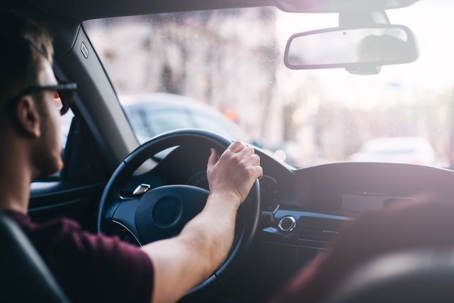Filing A Lawsuit Against Lyft
Under normal circumstances, if you are injured in an accident caused by another driver and that driver was working at the time, you could sue his employer. The law treats an employer as liable for negligence that occurs when the driver is within the scope of his employment. That is, the employer is liable if the driver was doing what he was hired to do at a time and place consistent with his job and if at least part of what he was doing on the road was for the benefit of his employer.
While that’s the usual rule, rideshare companies like Lyft or Uber, plus other gig-worker companies like Instacart or Grubhub, use a business model that tries to avoid this rule. These companies treat the people who work under their name as independent contractors, not employees. An employer is generally not liable for the negligence of an independent contractor.
However, a company usually cannot escape liability simply by giving a new label to the people who work for it. There are rules for when someone is an employee and when they are a contractor. Generally, the more control a company has over how someone does their job, the more likely that person is going to be treated as an employee by law.
The gig-worker companies try to avoid the usual rules about workers and contractors by creating app-based platforms that match customers with the people they call contractors. If you start driving for Lyft, you will log onto the app when you are ready to start a work shift and look for people in your area who need rides. Once you find one, you claim it and make arrangements with the customer. Lyft’s position is that it does not direct you to do a particular pickup, but instead acts as a matching service between you and potential customers.
All of this matters because of insurance. Large companies are more likely to carry insurance than individual drivers, and their policies tend to have higher limits. So, if someone is seriously injured by a Lyft driver, who pays?
Florida’s Rideshare Regulations
Florida imposed new requirements on the rideshare industry in 2018. Significantly, the new law explicitly permits rideshare companies to treat drivers as independent contractors, so long as they meet certain requirements. Lawyers have tried to make the case that companies like Lyft do more than matchmaking and that their drivers should be treated as employees. That’s no longer an option if the rideshare companies comply with the new law.
The law regulates rideshare drivers more than it regulates the companies. Under the new law, drivers must carry insurance, which they may be able to obtain through the company. Alternatively, Florida insurance law allows a driver to carry an insurance policy that includes driving in a rideshare business, called a “rideshare endorsement.”
The insurance requirements vary based on whether the driver is delivering a passenger or not. So, if you are injured by a Lyft driver, you will need to know what the driver was doing.
The insurance limits are highest when the driver is engaged in what the law calls a “prearranged ride,” where you get on the app to request a ride. Under the law, the prearranged ride begins when the driver accepts the ride and ends when the last passenger exits the vehicle. During that time, the driver’s policy must provide at least $1 million in liability coverage.
If you are a passenger in a Lyft car that is involved in an accident, you were injured during a prearranged ride. If the Lyft driver is at fault in an accident in which you were not a passenger, it will take work to determine if the driver was on his way to pick up a passenger. Fortunately, the law also requires rideshare companies to maintain records on each prearranged ride, so information about whether a driver had accepted a ride should be available.
The insurance requirements are lower when a driver is logged onto the network but not engaged in providing a ride. If a driver is on the road looking for the next ride when he hits you, he’s still carrying liability insurance, but not as much. The companies must maintain records on each driver for at least one year after the driver stops working for the company, so information about whether a driver was logged onto the network should also be available.
Can Lyft Ever Be Sued?
While the new law imposes most of its requirements on drivers, it does introduce some new requirements on rideshare companies. For example, companies must conduct background checks on drivers and cannot hire drivers with certain convictions within the last five years, including any felony, a DUI, or misdemeanor reckless driving.
Also, the law requires companies to create a zero-tolerance policy for drivers using drugs or alcohol when logged onto the network. Under the policy, riders can complain if they suspect a driver was under the influence of alcohol or drugs while providing a ride, and the company must suspend and investigate the employee. The law appears to allow a lawsuit for negligently hiring or retaining a driver if the company failed to comply with these requirements.
Contacting A Florida Lyft Accident Attorney
If you were injured in a Lyft accident, then after getting medical attention, contact an experienced Florida Lyft accident attorney who deals with ridesharing accident and injury cases. At The Watson Firm, our attorneys know how to hold drivers and their ridesharing companies accountable and to make them pay you the damages you deserve to help you make the best possible recovery from injury.
Call (850) 607-2929 or contact us online for a free consultation with one of our Pensacola Lyft accident attorneys today. Our firm has recovered millions of dollars on behalf of our clients throughout Florida!


